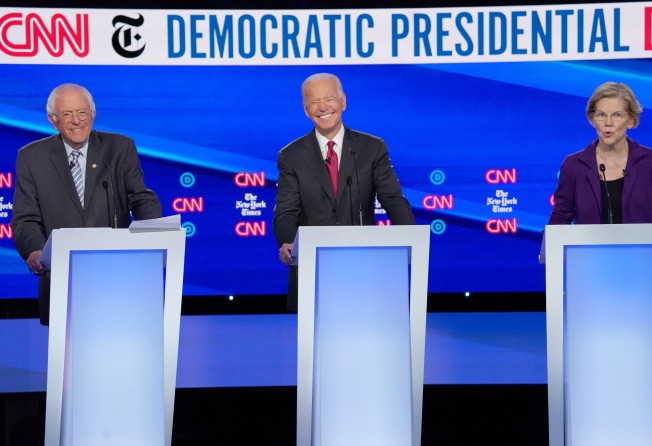What to expect from the 2020 US elections: more disunity, no love for China
- History shows that 68 per cent of incumbent presidents get re-elected. So Donald Trump is likely to stay and the division between the House and the Senate will probably continue, as will US-China tensions

We are now less than a year away from the US presidential and congressional elections. Given the impact of President Donald Trump’s policies in recent years, we should expect the outcome of the race for the White House, whoever wins, to be significant for global investors. Unfortunately, I don’t have a crystal ball to predict how this will play out, but we can make some educated guesses about what to expect.
First, Congress is likely to remain divided. Before zooming in on the presidential race, it is important to recognise that the congressional elections could be more important in driving policy changes in the years to come.
Currently, the Democrats have a majority in the House of Representatives, occupying 233 out of 435 seats. In the Senate, the Republicans hold 53 of the 100 seats.
This division between the two chambers means it is next to impossible for any major legislation, such as policies on the tax code and health care, to receive sufficient support from both the House and the Senate. The legislative bottleneck is likely to cause policy stagnation.
For the Republicans to recapture the House, they will need to win 21 seats from the Democrats. Although this is numerically possible, it is rare to see such a large swing in a presidential election year.
Swings of this magnitude are much more likely in a midterm election, the next one being in 2022. Hence, it is highly likely the Democrats will retain control of the House.
In November 2020, 35 Senate seats – 23 currently held by Republicans, and 12 by Democrats – are up for election. Our calculation suggests the Democrats could win up to three seats in the best-case scenario, which could tip the Senate to 50-50.
This would make the presidential race critical since the vice-president gets a vote in the event of a tiebreak. It should be a close call, but we still think the Republicans will keep their majority in the Senate by a very narrow margin.
This implies the current division between the House and the Senate is unlikely to change in next year’s elections. Whoever wins the presidential race, it will be an uphill battle, if not impossible, to push through legislative changes in health care, education or taxes.
Second, the Trumpian style of governance is likely to continue. One of Trump’s hallmarks is making the most of a president’s power to act unilaterally, instead of going through Congress; a good example is trade tariffs against China. This could continue if he is re-elected. History shows that 68 per cent of incumbents get re-elected.
Despite his relatively low approval rating versus previous presidents three years into the presidency, Trump is still exerting his influence on the economy, which is enjoying the lowest unemployment rate in decades.
This would imply that additional tariff threats against China, in a trade war that is causing financial pain to voters, could be toned down.
However, a sustained de-escalation in trade tensions is unlikely, since the competitive threat posed by China is one of the few issues on which Republicans and Democrats have similar views. Hence, US-China tensions in trade, technology and geopolitics are unlikely to ease even after next year’s elections.
The Democratic field has produced quite a wide range of policy advocates. For example, former vice-president Joe Biden is looking to reverse the Trump tax cuts of 2017.
Elizabeth Warren, who has gained greater support in recent weeks, looks to impose a wealth tax on the richest Americans and additional taxes on large companies, break up big tech firms and banks, and introduce “Medicare for All” to cover those with no private health insurance.
However, as noted above, these policies would be hard to implement unless the Democrats have a “three of a kind” in their hands, namely the White House, the Senate and the House of Representatives.
Tai Hui is chief market strategist for the Asia-Pacific at JP Morgan Asset Management